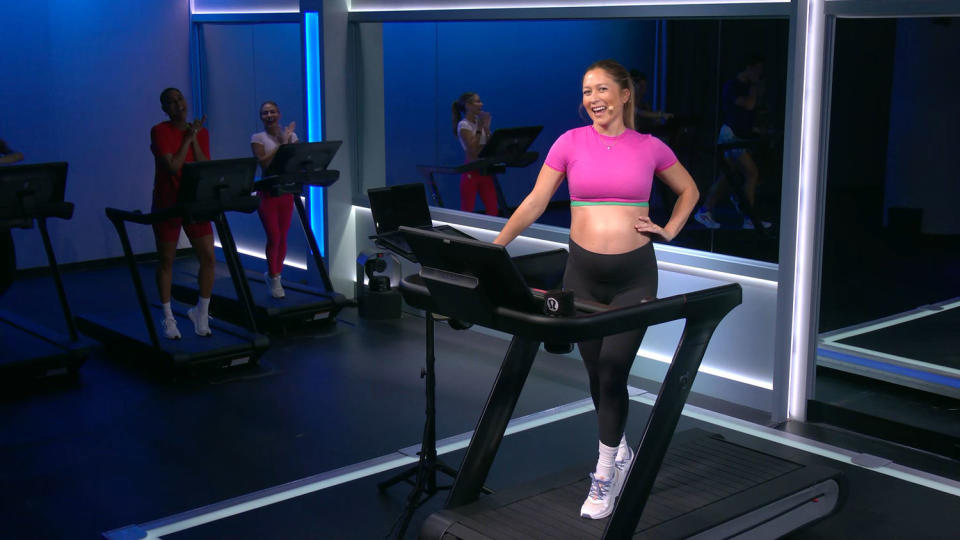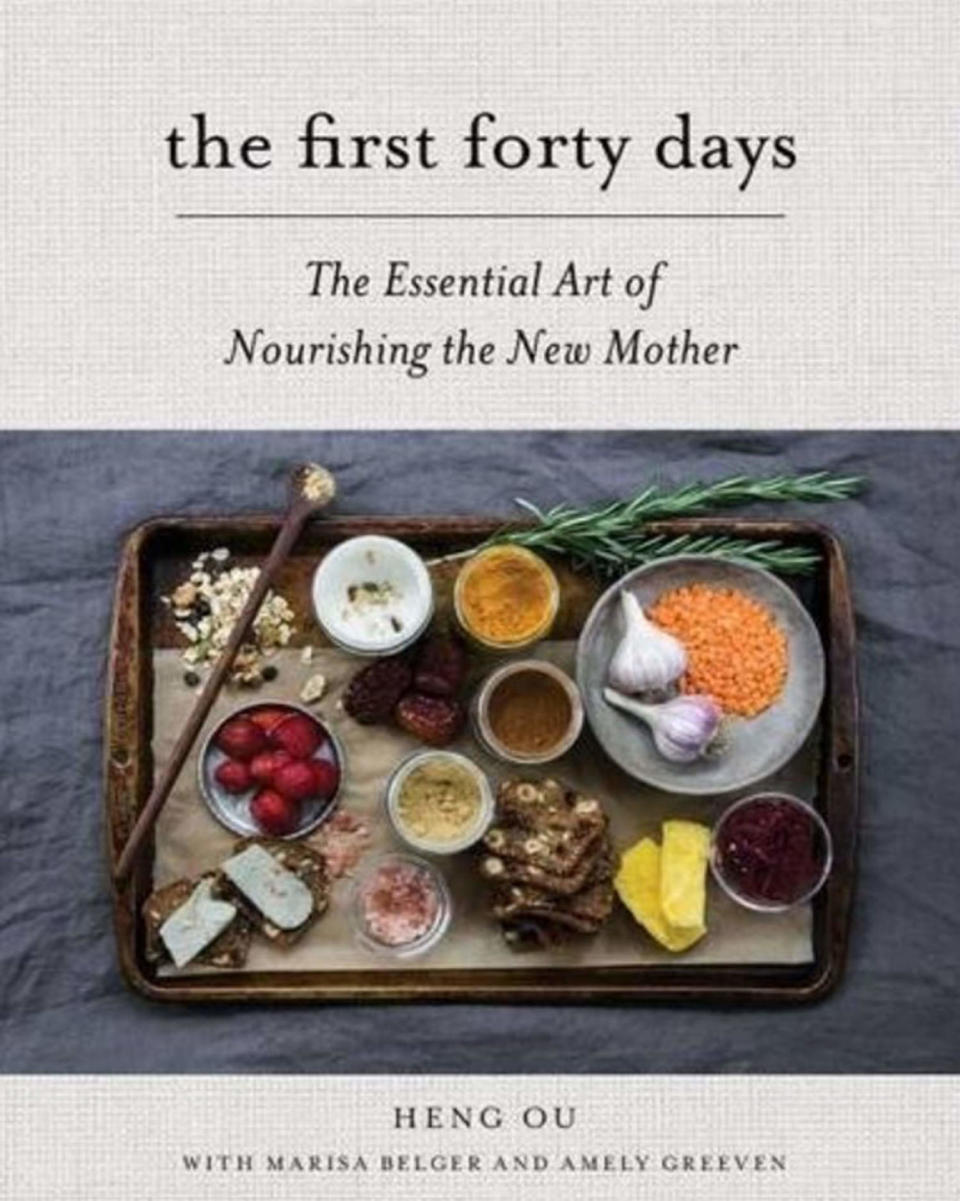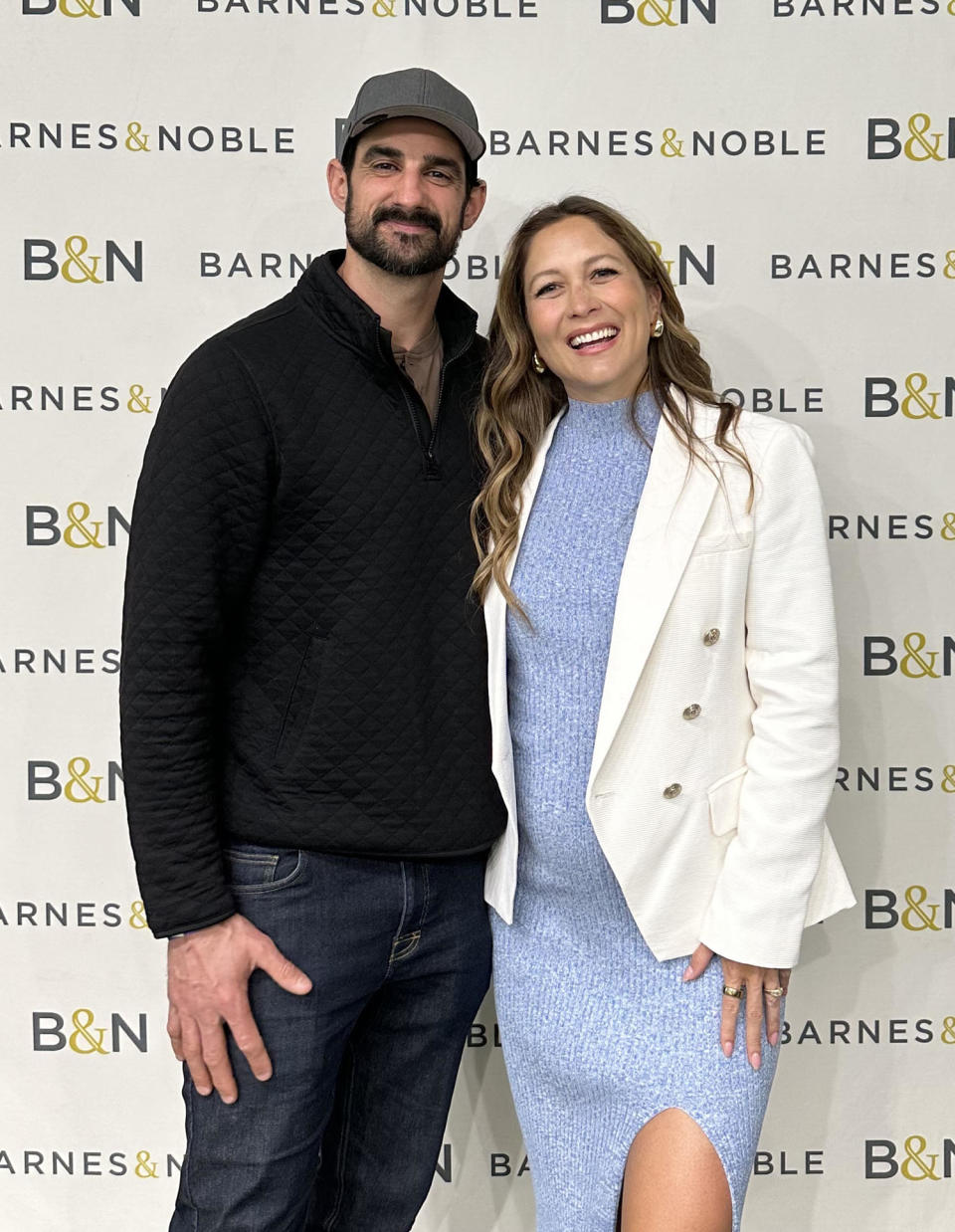As she enters her third trimester of pregnancy, Emma Lovewell is not slowing down.
“You’re at the bottom, looking up at a challenge,” the Peloton instructor declares, her ponytail swinging and her sneakers striding to the beat of a Goo Goo Dolls tune.
“You can do the hard thing!” Lovewell encourages her treadmill students, who are sweating buckets to keep pace with her. “You can get through the challenge. And you are absolutely worth the effort.”
She looks amazing and still has visible abs, somehow, framing her basketball-shaped belly. But her pregnancy woes like acid reflux and heartburn are a reminder that fitness gurus are mere mortals, too.
She has no plans to hop back on a treadmill or a bike days after giving birth. Just the opposite: She’s embracing an old tradition of “confinement,” planning to spend several weeks afer birth doing nothing but bonding with her baby and letting her body rest.
“REAL rest,” Lovewell clarifies. “Like, horizontal.”

Sitting on a couch outside the Peloton Studios’ locker room in New York City — while chatting about baby names (undecided) and the baby’s gender (secret for now) — Lovewell tells TODAY.com, “I’m learning more about what that healing process could look like.”
“Not just like trying to start running at six weeks postpartum or whatever; really just taking your time and nourishing your body,” she says.
Lovewell is one of a growing number of mothers who are rejecting “bounce back” or “snap back” culture — in which new moms boast about how quickly they return to “normal” after giving birth — in favor of the recognition that new mothers need time to heal and be nurtured.
What is postpartum confinement?
“In America, something about this ‘bounce back’ is really debilitating for women and families,” says Heng Ou, author of “The First Forty Days,” a book about the Chinese tradition of postpartum confinement, a protective post-partum rest and rejuvenation period. First published in 2016, it’s still a best-seller today. “It’s really become a movement,” says Ou.


Lovewell plans to use “The First 40 Days” as a guide for her first month with her new baby. She might shorten it to 30 days, she says, but she plans to use some of the recipes and ideas about new-mom rejuvenation from the book. Her mom is from Taiwan, and Lovewell says she’s always been interested in traditional Chinese medicine. The name for the Chinese postpartum tradition literally translates to “sitting the month,” Ou says.
Some of the pillars of the tradition include nothing taxing for the mom physically or mentally — so no running up hills, and also no stressful visitors. (This tradition is all about protecting a new mom’s peace.) Mothers are encouraged to drink a lot of warm liquids and soups, and eat certain strength-building foods. The first week or so is spent mostly in bed, and massage is frequently incorporated. There’s a whole labor force of “confinement help” in some countries: in New York City, Lovewell plans to rely on her partner, her family and friends for support.


What is ‘lying in’?
The postpartum confinement tradition is not only part of Chinese culture: There are similar traditions in India, Mexico, Japan, Guatemala, Laos, Thailand, Malaysia, Iran, Pakistan, Korea and other countries. In English, the practice was called “lying in” — maternity wards used to be called “lying in” hospitals. Due dates are still sometimes referred to as the “Estimated Date of Confinement,” or EDC for short. The terminology survived while the practice died out in the U.S.; thanks to Ou and other moms like Lovewell, it’s making a comeback.
In the Chinese medicine tradition, Ou explains, a person who has just given birth is believed to be “in the most vulnerable state, an open state. And this is the time to replenish and rejuvenate everything … Right now, during this postpartum period.”
The most important thing, Ou says, is to make sure the mother is protected from anything that might do her harm, physically, spiritually or psychologically.


Lovewell says she is keenly aware that, as a fitness instructor, it’s literally her job to be in good physical shape — so she’ll have to get back into her workout routine on the sooner side. But she’ll do it at her own pace, just like she climbs those treadmill mountains.
“I want to think about it and take my time and move slowly,” she says.
This article was originally published on TODAY.com

